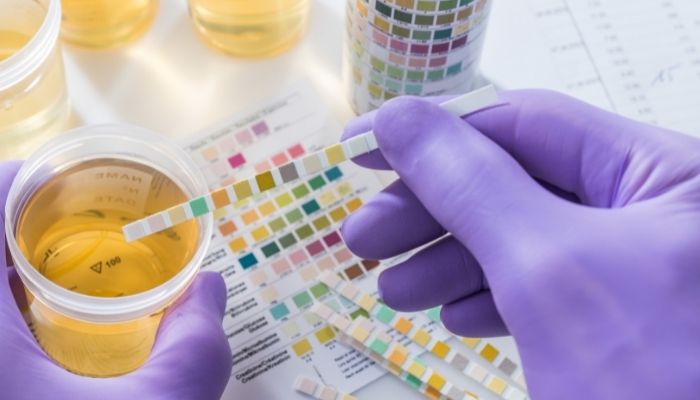

A Urine Test, or Urinalysis, Is a Common Diagnostic Tool Used to Assess Overall Health and Detect Various Medical Conditions. It Involves Analyzing a Sample of Urine for Physical, Chemical, and Microscopic Properties. While Often Associated with Routine Check-Ups or Suspected Urinary Tract Infections, Urine Tests Can Provide Valuable Insights into a Wide Range of Health Issues.
Physical Examination: This Involves Assessing the Urine's Color, Clarity, and Odor. Abnormal Findings Might Indicate Infections, Dehydration, Liver Problems, or Other Conditions. Chemical Analysis: This Test Checks for Substances Such as Glucose, Protein, Ketones, Bilirubin, Blood, and Nitrite.
These Components Can Signify Diabetes, Kidney Disease, Liver Problems, Urinary Tract Infections, or Other Health Concerns. Microscopic Examination: Under a Microscope, Urine Is Examined for Red Blood Cells, White Blood Cells, Bacteria, Crystals, and Casts. These Elements Can Help Diagnose Infections, Kidney Stones, Kidney Disease, or Other Urinary Tract Disorders.
Routine Check-Ups: Urine Tests Are Often Included in Annual Physical Exams to Monitor Overall Health and Detect Early Signs of Disease. Urinary Tract Infections (Utis): Utis Are Common and Can Cause Symptoms Like Burning During Urination, Frequent Urination, and Cloudy or Foul-Smelling Urine. a Urine Test Helps Confirm the Diagnosis and Identify the Type of Bacteria Causing the Infection. Kidney Disease: Urine Tests Can Detect Protein or Blood in the Urine, Which May Indicate Kidney Damage. Early Detection Is Crucial for Managing Kidney Disease.Diabetes: High Levels of Glucose in the Urine Can Be a Sign of Uncontrolled Diabetes. Regular Urine Tests Help Monitor Blood Sugar Levels.Liver Problems: Certain Substances, Such as Bilirubin, in the Urine Can Indicate Liver Dysfunction.Pregnancy: Urine Tests Are Used to Confirm Pregnancy and Monitor Kidney Function During Pregnancy.Drug Screening: Urine Tests Can Be Used to Detect the Presence of Illicit Drugs or Prescription Medications.
To Ensure Accurate Results, Follow These Guidelines:Cleanliness: Proper Hygiene Is Essential. Clean the Genital Area Before Collecting the Urine Sample. Sample Collection: Follow the Specific Instructions Provided by Your Healthcare Provider. Midstream Urine Is Typically Preferred.Timing: Some Tests Require Urine Samples at Specific Times of the Day.
If Your Urine Test Results Are Abnormal, Your Healthcare Provider Will Discuss the Findings with You and Recommend Further Tests or Treatment If Necessary. It's Important to Remember That Urine Tests Are Just One Part of a Comprehensive Health Evaluation.in Conclusion, a Urine Test Is a Simple Yet Informative Diagnostic Tool That Can Provide Valuable Insights into Your Overall Health. While It Can Detect a Wide Range of Conditions, It's Essential to Consult with a Healthcare Professional to Interpret the Results Accurately and Develop an Appropriate Plan of Care.